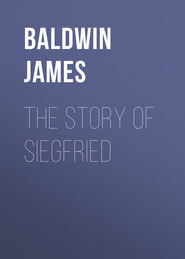По всем вопросам обращайтесь на: info@litportal.ru
(©) 2003-2024.
✖
Four Great Americans: Washington, Franklin, Webster, Lincoln
Настройки чтения
Размер шрифта
Высота строк
Поля
They saw all kinds of workmen busy at their various trades.
Benjamin was delighted. Long afterwards, when he had become a very great man, he said, "It has ever since been a pleasure to me to see good workmen handle their tools."
He gave up the thought of going to sea, and said that he would learn any trade that his father would choose for him.
His father thought that the cutler's trade was a good one. His cousin, Samuel Franklin, had just set up a cutler's shop in Boston, and he agreed to take Benjamin a few days on trial.
Benjamin was pleased with the idea of learning how to make knives and scissors and razors and all other kinds of cutting tools. But his cousin wanted so much money for teaching him the trade that his father could not afford it; and so the lad was taken back to the candle-maker's shop.
Soon after this, Benjamin's brother, James Franklin, set up a printing press in Boston. He intended to print and publish books and a newspaper.
"Benjamin loves books," said his father. "He shall learn to be a printer."
And so, when he was twelve years old, he was bound to his brother to learn the printer's trade. He was to stay with him until he was twenty-one. He was to have his board and clothing and no other wages, except during the last year. I suppose that during the last year he was to be paid the same as any other workman.
* * * * *
V.—HOW FRANKLIN EDUCATED HIMSELF
When Benjamin Franklin was a boy there were no books for children. Yet he spent most of his spare time in reading.
His father's books were not easy to understand. People nowadays would think them very dull and heavy.
But before he was twelve years old, Benjamin had read the most of them. He read everything that he could get.
After he went to work for his brother he found it easier to obtain good books. Often he would borrow a book in the evening, and then sit up nearly all night reading it so as to return it in the morning.
When the owners of books found that he always returned them soon and clean, they were very willing to lend him whatever he wished.
He was about fourteen years of age when he began to study how to write clearly and correctly. He afterwards told how he did this. He said:
"About this time I met with an odd volume of the Spectator. I had never before seen any of them.
"I bought it, read it over and over, and was much delighted with it.
"I thought the writing excellent, and wished if possible to imitate it.
"With that view, I took some of the papers, and making short hints of the sentiments in each sentence, laid them by a few days, and then, without looking at the book, tried to complete the papers again, by expressing each hinted sentiment at length and as fully as it had been expressed before, in any suitable words that should occur to me.
"Then I compared my Spectator with the original, discovered some of my faults and corrected them.
"But I found that I wanted a stock of words, or a readiness in recollecting and using them.
"Therefore, I took some of the tales in the Spectator and turned them into verse; and, after a time, when I had pretty well forgotten the prose, turned them back again."
About this time his brother began to publish a newspaper.
It was the fourth newspaper published in America, and was called the New England Courant.
People said that it was a foolish undertaking. They said that one newspaper was enough for this country, and that there would be but little demand for more.
In those days editors did not dare to write freely about public affairs. It was dangerous to criticise men who were in power.
James Franklin published something in the New England Courant about the lawmakers of Massachusetts. It made the lawmakers very angry. They caused James Franklin to be shut up in prison for a month, and they ordered that he should no longer print the newspaper called the New England Courant.
But, in spite of this order, the newspaper was printed every week as before. It was printed, however, in the name of Benjamin Franklin. For several years it bore his name as editor and publisher.
* * * * *
VI.—FAREWELL TO BOSTON
Benjamin Franklin did not have a very happy life with his brother James.
His brother was a hard master, and was always finding fault with his workmen. Sometimes he would beat young Benjamin and abuse him without cause.
When Benjamin was nearly seventeen years old he made up his mind that he would not endure this treatment any longer.
He told his brother that he would leave him and find work with some one else.
When his brother learned that he really meant to do this, he went round to all the other printers in Boston and persuaded them not to give Benjamin any work.
The father took James's part, and scolded Benjamin for being so saucy and so hard to please. But Benjamin would not go back to James's printing house.
He made up his mind that since he could not find work in Boston he would run away from his home. He would go to New York and look for work there.
He sold his books to raise a little money. Then, without saying good-bye to his father or mother or any of his brothers or sisters, he went on board a ship that was just ready to sail from the harbor.
It is not likely that he was very happy while doing this. Long afterwards he said: "I reckon this as one of the first errata of my life."
What did he mean by errata?
Errata are mistakes—mistakes that cannot easily be corrected.
Three days after leaving Boston, young Franklin found himself in New York. It was then October, in the year 1723.
The lad had but very little money in his pocket. There was no one in New York that he knew. He was three hundred miles from home and friends.
As soon as he landed he went about the streets looking for work.
New York was only a little town then, and there was not a newspaper in it. There were but a few printing houses there, and these had not much work to do. The boy from Boston called at every place, but he found that nobody wanted to employ any more help.
At one of the little printing houses Franklin was told that perhaps he could find work in Philadelphia, which was at that time a much more important place than New York.
Philadelphia was one hundred miles farther from home. One hundred miles was a long distance in those days.
But Franklin made up his mind to go there without delay. It would be easier to do this than to give up and try to return to Boston.
* * * * *











